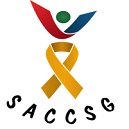Original Research
Oesophageal cancer in South Africa: The long timeline from onset of symptoms to definitive management
South African Journal of Oncology | Vol 1 | a6 |
DOI: https://doi.org/10.4102/sajo.v1i0.6
| © 2017 Morganayagi Govender, Lucien Ferndale, Damian L. Clark
| This work is licensed under CC Attribution 4.0
Submitted: 10 November 2016 | Published: 26 May 2017
Submitted: 10 November 2016 | Published: 26 May 2017
About the author(s)
Morganayagi Govender, Department of Surgery, Grey’s Hospital, University of KwaZulu-Natal, South AfricaLucien Ferndale, Department of Surgery, Grey’s Hospital, University of KwaZulu-Natal, South Africa
Damian L. Clark, Department of Surgery, Grey’s Hospital, University of KwaZulu-Natal, South Africa
Abstract
Background: In rural South Africa, most patients with oesophageal cancer have delayed presentations with debilitating symptoms and inoperable disease. This study was undertaken to quantify the delay between onset of symptoms and definitive treatment in a cohort of patients in rural South Africa, presenting to a state hospital in KwaZulu-Natal. The study also sought to establish reasons for delays in seeking medical attention and identify ways to encourage earlier presentation.
Methods: It was a two-armed study of patients with oesophageal cancer seen at Greys Hospital in Pietermaritzburg. One was a retrospective chart review establishing a timeline. The second part was a prospective study between June and November 2012 where data were collected by means of patient interviews.
Results: One hundred and thirteen charts were reviewed. The time from first symptoms to definitive management ranged from 2 to 14 months (average 7 months). Forty-six patients were interviewed. All experienced dysphagia but 83% were only prompted to seek help after weight loss. The duration of symptoms prior to first clinic or hospital attendance was 0–12 months (average 3 months). The reasons for the delay included the following: 41% of patients did not consider dysphagia a significant symptom, 24% had no money, 19% sought the help of traditional healers first and 15% said the hospital was too far away.
Conclusion: There are long delays in the management of oesophageal cancer in our setting. The delays are prehospital as well as within the health care system. Lack of knowledge about oesophageal cancer symptoms and limited access to health care contributed to delays in management. Targeted quality improvement interventions are necessary. Patient education and improved referral systems are vital in encouraging earlier presentation.
Methods: It was a two-armed study of patients with oesophageal cancer seen at Greys Hospital in Pietermaritzburg. One was a retrospective chart review establishing a timeline. The second part was a prospective study between June and November 2012 where data were collected by means of patient interviews.
Results: One hundred and thirteen charts were reviewed. The time from first symptoms to definitive management ranged from 2 to 14 months (average 7 months). Forty-six patients were interviewed. All experienced dysphagia but 83% were only prompted to seek help after weight loss. The duration of symptoms prior to first clinic or hospital attendance was 0–12 months (average 3 months). The reasons for the delay included the following: 41% of patients did not consider dysphagia a significant symptom, 24% had no money, 19% sought the help of traditional healers first and 15% said the hospital was too far away.
Conclusion: There are long delays in the management of oesophageal cancer in our setting. The delays are prehospital as well as within the health care system. Lack of knowledge about oesophageal cancer symptoms and limited access to health care contributed to delays in management. Targeted quality improvement interventions are necessary. Patient education and improved referral systems are vital in encouraging earlier presentation.
Keywords
oesophageal cancer; delays; timeline
Metrics
Total abstract views: 3290Total article views: 4633
Crossref Citations
1. Time intervals from first symptom recognition to pathological diagnosis among patients with oesophageal cancer in Ethiopia: a cross-sectional study
Berhe Dessalegn, Sefonias Getachew, Robel Yirgu, Fikre Enqueselassie, Mathewos Assefa, Adamu Addissie
BMJ Open vol: 12 issue: 8 first page: e060812 year: 2022
doi: 10.1136/bmjopen-2022-060812



